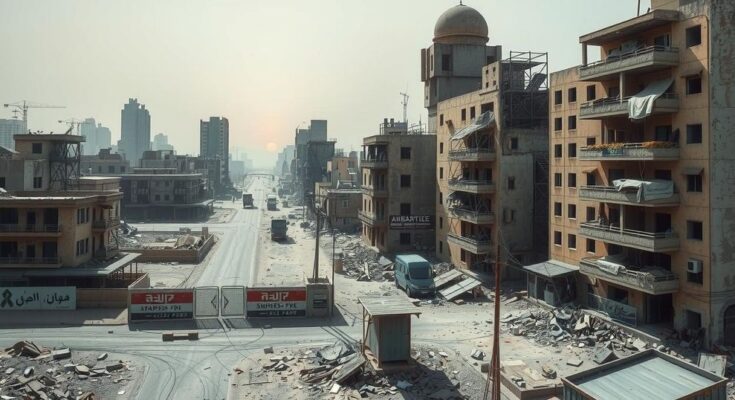The conflict in Sudan has led to significant military maneuvers in Khartoum, with the SAF regaining control from the RSF. However, humanitarian conditions are dire, exacerbated by ongoing violence and infrastructure destruction. Local grassroots efforts are crucial, but increasingly threatened. There is a pressing need for international intervention to improve humanitarian access, as the political resolution seems distant amidst persistent conflict and instability.
The ongoing conflict in Sudan has reached a critical juncture with recent military developments in Khartoum, where the Sudanese Armed Forces (SAF) regained control from the Rapid Support Forces (RSF). However, the humanitarian situation remains dire. As Mathilde Vu, an aid worker, observed, many individuals in Sudan are suffering from starvation, reflecting the devastation once witnessed in the region known as the breadbasket of East Africa. The local response provides a glimmer of hope, with grassroots efforts delivering essential services despite lacking resources. These efforts are precarious, particularly as violence continues to escalate.
The SAF’s recent military successes include securing key sites such as the presidential palace and other significant infrastructures. While these victories may seem promising, the situation in Khartoum remains unstable, and the threat of further conflict looms. Abiol Lual Deng, a political scientist, cautions against assuming that military control translates into lasting peace. The devastation inflicted on civilians, evidenced by widespread infrastructure failure, complicates the prospects for a swift recovery and stable governance in the aftermath of conflict.
Despite the destruction in Khartoum, many displaced residents are reconsidering their return, driven by a lack of alternatives amidst unsuitable living conditions. Dallia Abdelmoniem, an analyst, remarked that civilians are faced with the harsh reality of returning to areas lacking essential services. This underscores the pressing need for civil society to step in, especially as the possibility of continued violence from the RSF persists in areas like Darfur, where they retain significant control and power.
Access to humanitarian assistance remains obstructed across conflict areas, worsening the plight of civilians. While aid organizations continue to operate, the blockades used by both factions hinder efforts to deliver necessary support. Analysts emphasize the critical need for increased international pressure on the parties involved to ensure unimpeded humanitarian operations, as humanitarian access must be prioritized irrespective of the political landscape.
With ongoing geopolitical complexities influencing the conflict, the SAF’s internal cohesion could be at risk, potentially leading to further instability. As the dynamics between military factions evolve, the situation in Sudan carries broader implications, impacted by external regional influences. Khartoum may be officially held by the SAF, but achieving peace and recovery remains an arduous task as civilians endure the ongoing humanitarian crisis amid attempts to navigate a treacherous landscape characterized by violence and uncertain governance.
The current state of Sudan reflects a tragic intersection of military power struggles and humanitarian crises. Despite the recent retaking of Khartoum by the SAF, the situation remains precarious as civilians navigate widespread deprivation and insecurity. The necessity for sustained humanitarian access and international pressure on all warring parties is vital to ameliorate distressing conditions for those affected by the ongoing conflict. The path to peace in Sudan is fraught with challenges, demanding immediate and coordinated global engagement to support its beleaguered population.
Original Source: www.arabnews.com




